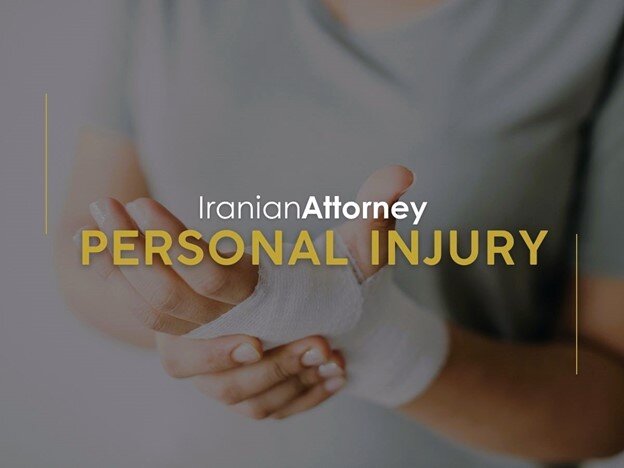Iranian Personal Injury Lawyers & Student Injuries

IranianAttorney.net - Student injuries resulting from negligent supervision can be a serious and distressing matter. When students are under the care or supervision of educational institutions, such as schools or daycare centers, there is a legal obligation to provide a safe environment.
Personal injury lawyers play a crucial role in representing the interests of students and their families when injuries occur due to negligent supervision. Here's an overview of student injury cases involving negligent supervision and the role of an Iranian Personal Injury Lawyer:
1. Negligent Supervision:
Negligent supervision refers to the failure of those responsible for overseeing students to exercise reasonable care, leading to an injury or harm. This can occur in various settings, including schools, daycares, field trips, and extracurricular activities.
2. Legal Duty of Care:
Educational institutions owe a duty of care to students, and this duty extends to providing adequate supervision to prevent foreseeable harm. When this duty is breached, and injuries occur, the injured party may have legal grounds for a personal injury claim.
3. Iranian Personal Injury Lawyer's Role:
Iranian Personal Injury Lawyers specializing in student injury cases involving negligent supervision provide essential services throughout the legal process:
Case Evaluation: Personal injury lawyers assess the circumstances surrounding the injury, gathering evidence to determine if there was a breach of the duty of care through negligent supervision.
Legal Consultation: They provide legal consultation to the injured party or their family, explaining their rights, potential legal actions, and the likelihood of success in pursuing a claim.
Investigation: Iranian Accident Lawyers conduct thorough investigations, reviewing school policies, interviewing witnesses, and gathering any available evidence to support the claim.
Legal Strategy: Based on their findings, personal injury lawyers develop a legal strategy. This may involve negotiations with the educational institution or filing a lawsuit if a fair settlement cannot be reached.
Negotiations: Lawyers engage in negotiations with the defendant's representatives, typically seeking compensation for medical expenses, pain and suffering, emotional distress, and other damages.
Trial Representation: If negotiations do not lead to a satisfactory resolution, Persian Personal Injury Lawyers represent their clients in court. They present evidence, question witnesses, and make legal arguments to establish the defendant's liability.
Damages Recovery: In successful cases, lawyers work to secure compensation for their clients. This may include damages for medical bills, rehabilitation costs, emotional distress, and other losses.
4. Establishing Negligence:
To prevail in a student injury case involving negligent supervision, the plaintiff (injured party) and their lawyer typically need to establish four key elements:
- Duty of Care: The educational institution owed a duty of care to the student.
- Breach of Duty: The institution or staff breached that duty through negligent supervision.
- Causation: The breach of duty directly caused the student's injuries.
- Damages: The student suffered actual damages, such as medical expenses or emotional distress.
5. Prevention and Advocacy:
Iranian Accident Lawyers, through their representation of injured students, contribute to the prevention of future incidents by holding educational institutions accountable for maintaining a safe environment through proper supervision.
In conclusion, personal injury lawyers play a vital role in seeking justice for students who have suffered injuries due to negligent supervision. Their legal expertise, advocacy, and commitment to their clients contribute to holding educational institutions accountable for maintaining a safe environment for students under their care. Through legal actions, Persian Personal Injury Lawyers strive to secure compensation for the injured parties and promote a culture of accountability to prevent future incidents of negligent supervision.
Disclaimer: This article is for informational purposes only and does not offer any legal advice.
Leave a Comment